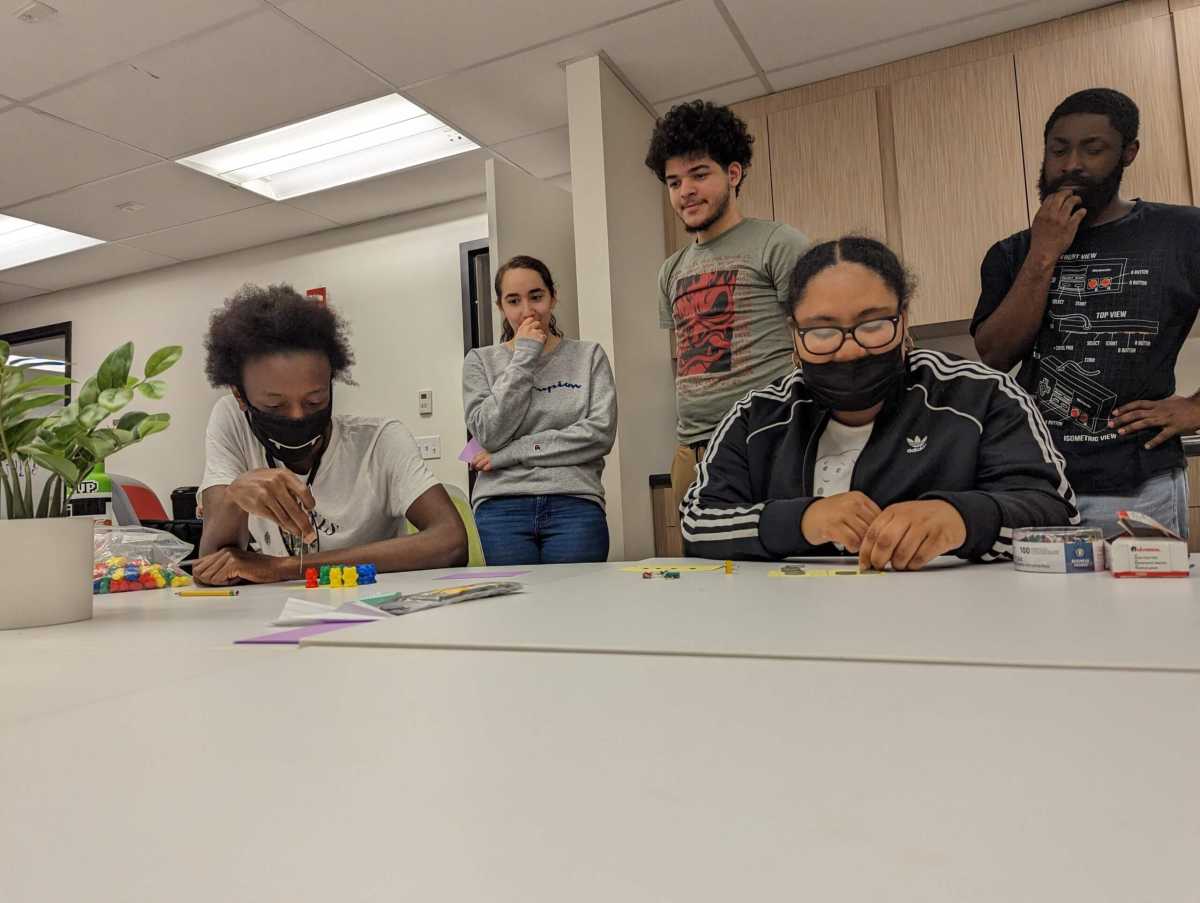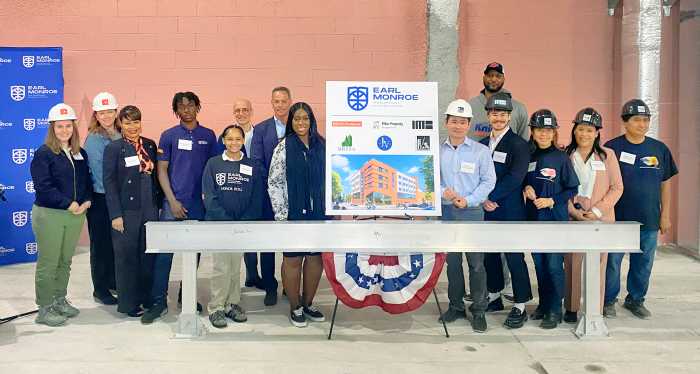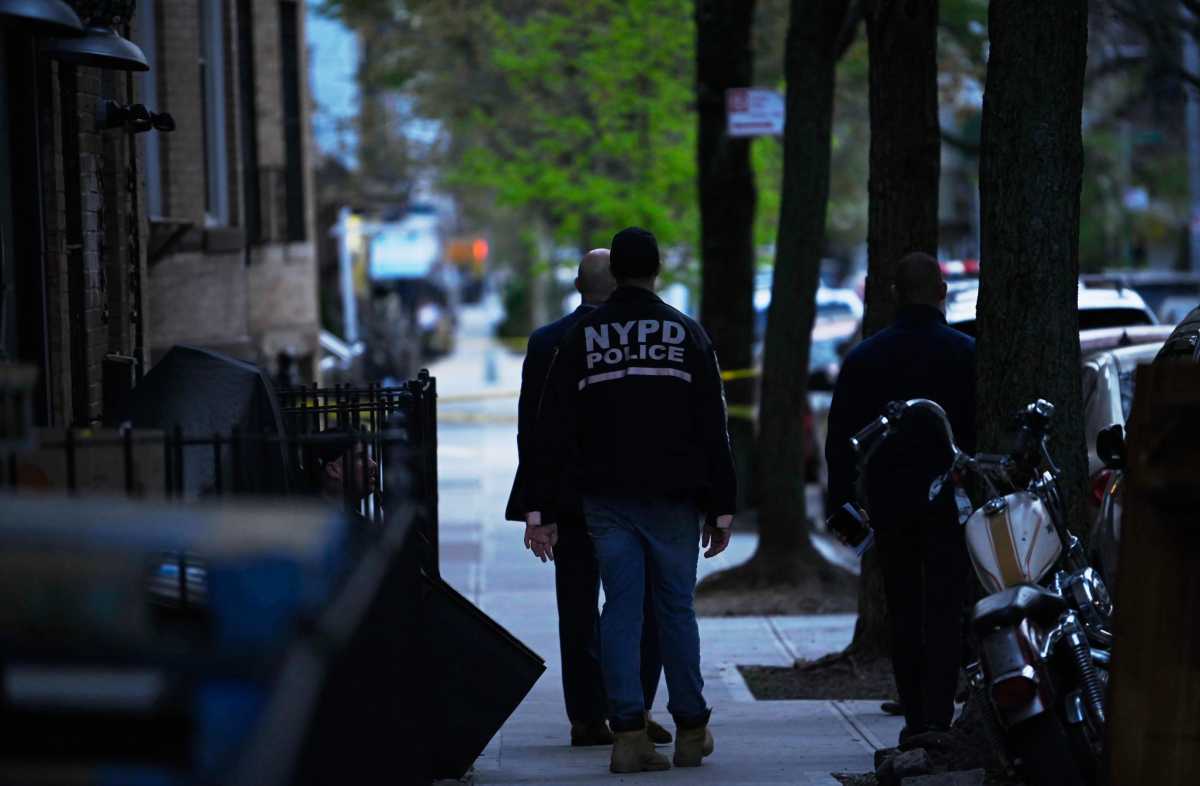This summer, six Hostos Community College students participated in a unique opportunity to collaborate on an original video game, learn valuable work skills and earn course credit — all while getting paid by their own school.
The students who participated are now well on their way to turning their passion for gaming into a viable career in an industry that is exploding worldwide.
Hostos, located in the South Bronx, was the state’s first public institution to offer a game design degree — a program that has been around 2012. Marcelo Díaz Viana Neto, assistant professor of game design at the college, said in an interview with the Bronx Times that he plans to make a recently formed internship “a fixture of the program.” The professor and his colleagues weren’t seeing enough well-paying, true entry-level positions in the field, so they developed the internship from scratch.
Shakan Paris, a 27-year-old Bronx native, was a member of this summer’s internship cohort and said that the program’s mantra — “just make stuff” — has helped them build a portfolio and work with confidence toward a career in game design.
The internship’s second cohort wrapped up in early August. As a group, they created an original video game called “A Worthy Toy,” telling the story of a Barbie-inspired doll who gets locked up by other toys and has to fight for her freedom.
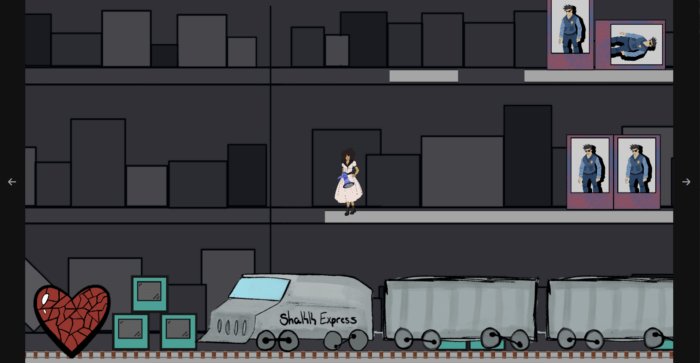
Paris said the team still considers the game unfinished, but told the Bronx Times, “Personally, I’m pretty happy and proud of what we created.
“It took us some time to conceptualize and put into action what we were going to do … and to finally see it come to fruition is just, like, a special thing to see.”
Breaking down barriers
The Hostos internship is unprecedented in the U.S., as far as Viana Neto and his colleagues have found. Rather than waiting on other institutions to create nicely-paid, entry-level opportunities in the gaming industry, “We decided to just do it ourselves,” he said.
New York City is now also actively investing in the gaming industry and related careers. In 2022, Mayor Eric Adams announced $2 million in funding to “transform the city into a global hub for the digital games industry,” including the establishment of a bachelor’s degree in digital game design at City College.
And the time is right, as gaming boomed during the pandemic and continues to grow. Data from Pricewaterhouse Coopers shows that global gaming revenue is expected to rise from $227 billion in 2023 to $312 billion by 2027.
Gaming careers are expanding accordingly — the occupations website O*Net Online classified video game design as a “bright outlook” field that is expected to have many openings in the coming years.
But despite its popularity, there are actually few ways for newbies — especially those not from privileged backgrounds — to break into the gaming industry. According to Viana Neto, many game design internships are unpaid and require two or three years of experience.
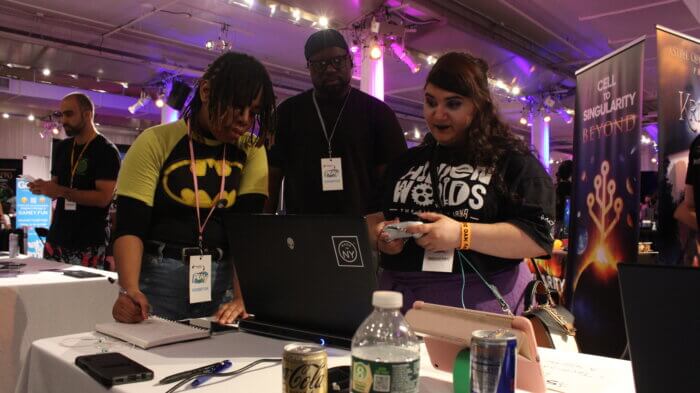
Lack of diversity can be another sticking point, as the industry is commonly perceived to be dominated by straight white men.
According to 2021 survey by the International Game Developers Association, 74% of respondents believed “there is not equal opportunity and treatment for all in the game industry.”
The program at Hostos aims to break down those barriers. The website for the Hostos Game Design program states, “Women, LGBTQ+, disabled and neurodiverse folks, non-native English speakers and others are welcome in this inclusive design community.”
While the internship program does not formally collect demographic data, the professor said that nearly all students in both summer cohorts were Black or Latino and represented a variety of gender identities.
The efforts toward inclusivity have paid off. Paris said the summer internship was the first time they worked on designing a game with a group — solo work is more common. But through the challenging experience, they all became “a close-knit community.”
“Bits and pieces” of funding
The summer cohort wasn’t all fun and games — they also learned lessons for success in a professional environment. Everything from work-life balance to salary discussions and project management is emphasized in the internship, Viana Neto said.
But securing funding for a comprehensive experience that pays students $20 per hour — a factor Viana Neto called “non-negotiable” — was not easy.
“We were chasing after bits and pieces” of funding, he said.
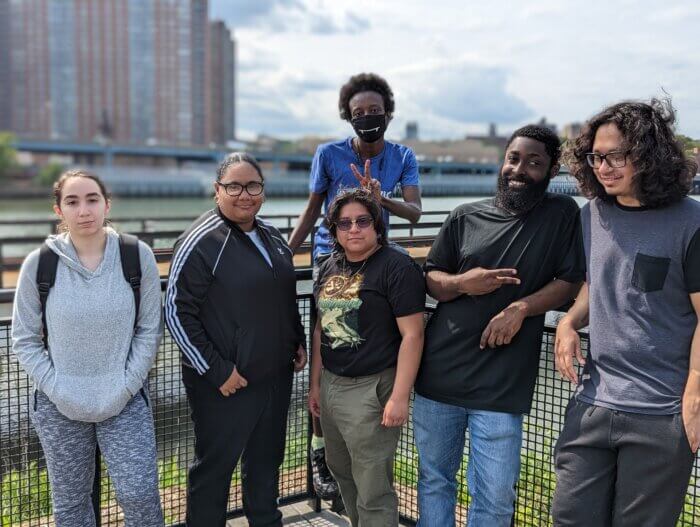
The program received grants from Microsoft Xbox and game publisher Take Two Interactive — owners of the Grand Theft Auto franchise. Money from Hostos programs created with funds from philanthropist MacKenzie Scott’s $15 million gift to the college in 2021 helped to bump up the students’ pay from $16 to $20 per hour.
“Right now we’re running summer to summer based on how much funding we’re able to get,” said Viana Neto.
Paris said that after one year in the game design program — a degree that carries a two-year commitment — it “feels like a home.” Viana Neto hopes to keep that momentum going and that opportunities like the summer internship will become the norm rather than the exception.
“It’s less important for us that we’re the only, but more important that other places see that we’re doing it,” he said.
For more information on this summer’s cohort, see www.otherpossible.com.
This article was updated on Aug. 23 at 7:20 a.m.
Reach Emily Swanson at emily.swanson63@journalism.cuny.edu. For more coverage, follow us on Twitter, Facebook and Instagram @bronxtimes

